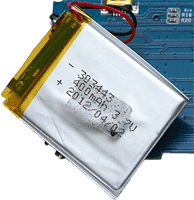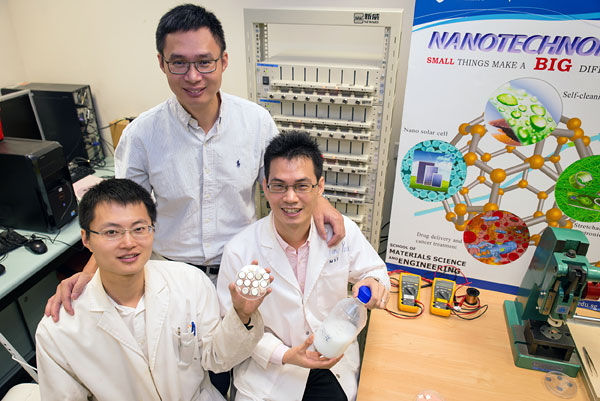New lithium-ion battery tech could charge in minutes, keep working for decades
posted Monday, October 13, 2014 at 6:04 PM EDT

Fed up with replacing your rechargeable batteries once or twice a year after they stop holding a reasonable charge? Wish you could recharge more quickly, so you didn't need to juggle quite so many batteries and chargers? If so, a research team at Singapore's Nanyang Technological University feels your pain, and they believe they have the answer.
The team, led by associate professor Chen Xiaodong of NTU's School of Materials Science and Engineering, are proposing a replacement for the anode of a typical lithium-ion battery that they say could be cheaply and easily manufactured, and yet provide significant benefits. The current graphite anode of a lithium-ion cell limits charge / discharge rate, and it also provides a relatively short life of around 500 cycles. By contrast, NTU's replacement anode design uses a gel of titanium dioxide nanotubes that allow much quicker charging and a far, far longer useful life.
Although the charge density of the cell wouldn't be affected, meaning that it would provide the same run times as with existing technology, recharging to a useful level would be achieved in a fraction of the time that it currently takes. According to NTU, 70% of a full charge could be restored to the cell in just two minutes -- provided, of course, that your power source was able to supply sufficient energy. At the same time, instead of a life limited to just 500 cycles or thereabouts, NTU says the new tech would allow up to 10,000 cycles -- potentially enough for decades of usage.

For consumers, the advantages are obvious: Products like smartphones with built-in batteries would have a significantly longer useful life, and topping off would be quick enough that -- so long as a charger was available -- spare batteries could be left at home. If you've ever roamed an airport looking for an unused power socket so you could check your messages or make a call, you've immediately got a sense for how significant a change that the technology could represent.
It goes beyond that, though, because once you're done with your batteries, they need to be recycled -- and with an order-of-magnitude increase in their life, that would mean a lot less batteries being recycled. And of course, faster charging and a greater life would b huge news for products beyond just your camera or phone. Imagine charging your car's batteries in minutes, about the same time it takes you to refuel with gas right now.
At the moment, we're still quite early in the prototype stage, it would seem. The NTU team are currently applying for grants that would allow large-scale prototypes. However, according to the press release, a license has already been signed with at least one company that could see products on the market within just two years. We're surely not alone in hoping that the research pans out, and that this forecast holds out. It would be great to only have to buy batteries once, and then have them last the life of our new camera, and doubly so to know we were helping reduce waste at the same time!
(via Petapixel. Lithium-ion battery image courtesy of Arkadiusz Sikorski / Flickr; used under a Creative Commons CC-BY-2.0 license. Image has been modified from the original.)